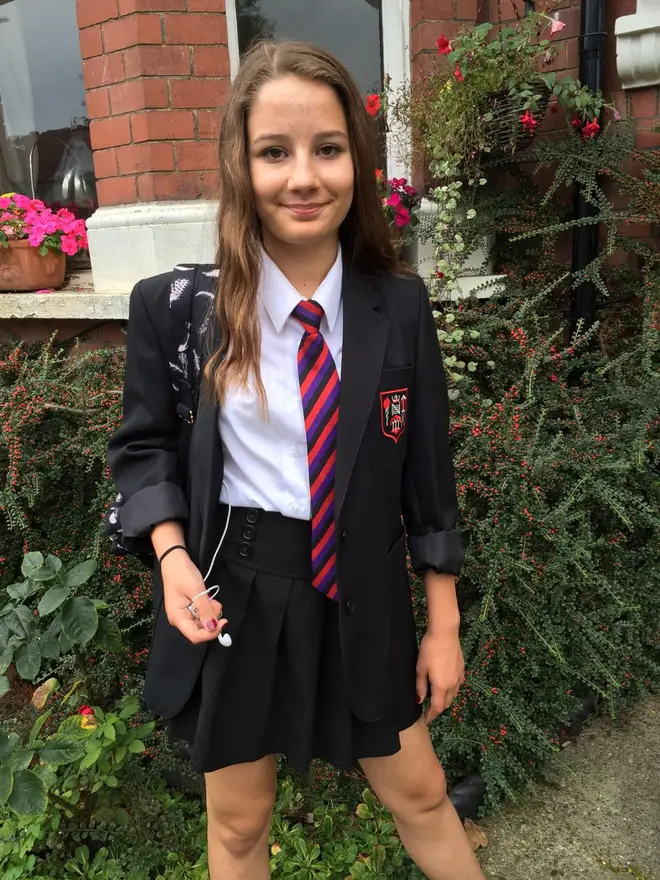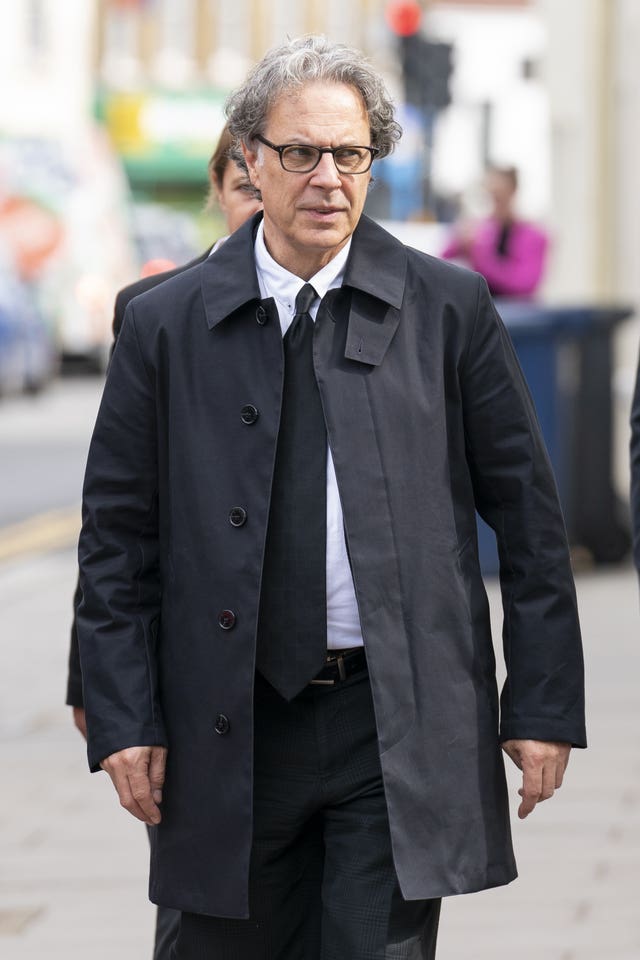
Vanessa Feltz 3pm - 6pm
22 September 2022, 17:34

The social media giant’s head of community operations apologised at the inquest into the teenager’s death on Thursday.
A senior executive from social media giant Pinterest has apologised as he admitted the site was “not safe” when schoolgirl Molly Russell used it.
The company’s head of community operations, Judson Hoffman, told North London Coroner’s Court that self-harm or suicide content that violates its policies “still likely exists on our platform” and conceded it is not as safe as it could be.
Mr Hoffman said he “deeply regrets” posts viewed by Molly on Pinterest before her death, saying it was material he would “not show to my children”.

The 14-year-old, from Harrow, north-west London, ended her life in November 2017, prompting her family to campaign for better internet safety.
On Thursday, Mr Hoffman was taken through emails sent to Molly such as “10 depression pins you might like”, which the witness said contained “the type of content that we wouldn’t like anyone spending a lot of time with”.
Pinterest describes itself as a “visual discovery engine for finding ideas” where users can save the “pins” they see to their own “boards” – said in court to be akin to creating a collage.
Mr Hoffman said the platform is “safe but imperfect” as he admitted that harmful content still “likely exists” on the site.
The senior executive said recent searches of “suicidal quotes”, which was a term used by Molly, displayed content he agreed should have been removed.
He told the court it was an “error” that the material had not been taken down as the phrase should have been part of the banned search terms.

Mr Hoffman said: “Content that violates our policies still likely exists on our platform.
“It’s safe but imperfect and we strive everyday to make it safer and safer.”
Coroner Andrew Walker asked: “It’s not as safe as it could be?”
Mr Hoffman replied: “Yes, because it could be perfect.”
Oliver Sanders KC, representing the teenager’s family, asked: “Pinterest accepts that it’s platform should be safe for children?”
Mr Hoffman answered: “It should be safe for everyone on the platform.”
Mr Sanders continued: “And it accepts that in 2017, when Molly was on it, it wasn’t safe?”
Mr Hoffman replied: “That’s correct, there was content that should have been removed that was not removed.”
Giving evidence from the witness box, the senior executive was taken through a vast number of “disturbing” images Molly had interacted with on the site relating to self-harm, suicide and depression.
The court was shown two streams of content the teenager saw, comparing the material she viewed earlier in her use of the platform and in the months closer to her death.
While the earlier content included a wide variety of material, the latter focused on depression, self-harm and suicide.
Asked by Mr Sanders if he agreed that the type of content had changed, Mr Hoffman said: “I do and it’s important to note, and I deeply regret that she was able to access some of the content shown.”
Mr Sanders asked: “Are you sorry it happened?”
Mr Hoffman replied: “I am sorry it happened.”
The witness insisted the platform had not taken a “risky” option of allowing children to use it despite the possibility they may encounter harmful content.
The court heard how Pinterest uses artificial intelligence and human moderators to hide or remove content related to self-harm and suicide.
The system was largely successful but users may still encounter such content, the inquest was told.
Mr Sanders suggested to Mr Hoffman the site had “chosen to take risk” when there was a “no-risk option” of not allowing children on Pinterest.
Mr Hoffman replied: “I would say chosen an option other than absolutely no risk, I would not say risky option… obviously our intention is to reduce the risk.”
The senior executive said the technology available to the company now was “just not available to us” before Molly’s death.
The court heard Pinterest sent other emails to Molly with headings such as “depression recovery, depressed girl and more pins trending on Pinterest” and “new ideas for you in depression”.
Mr Hoffman was asked by Mr Sanders if he believed the images in the emails sent by the company were “safe for children to see”.
He replied: “I want to be careful here because of the guidance that we have seen.
“I will say that this is the type of content that we wouldn’t like anyone spending a lot of time with.”
The inquest was told Molly made a number of boards on Pinterest, including two of interest to proceedings.
Mr Sanders said one board was called “stay strong”, which tended to “have more positive” material pinned to it, while the other board, with “much more downbeat, negative content”, was called “nothing to worry about”.
The inquest, due to last up to two weeks, continues.